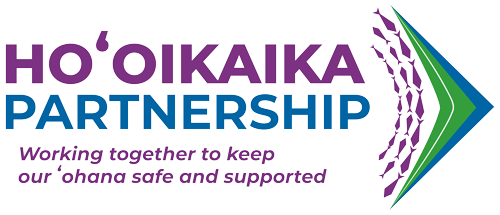The Four Senses
This framework was crafted by the Nā Hokua Project at the University of Hawaiʻi at Mānoa, College of Education’s Center on Disability Studies.
I felt this framework helped me to create a better perspective in my journey as a Resource Caregiver (RCG formerly known as a “foster parent”). The literal definitions are listed beside each sense of the framework.
Pilina – Sense of Association
Pikoʻu – Sense of Connection
Pono – Sense of Wellbeing
Kuleana – Sense of responsibility
Pilina is the Sense of Belonging, which focuses on identifying and strengthening current support systems while building new ones. For example the family that the child or children will be entering into will be a new support system for the child(ren). This “Sense of Belonging” is when you and the child or children become a unit “ A Family (‘Ohana)”. Finding that connection between child and caregiver isn’t always easy but making the effort whether it be through food, movies, games, or other activities.
My mother always welcomed guests to our family home whether it be announced or unannounced with food. A care pack of snacks prepared with a toiletry bag and a fresh towel is my setup. I would love to hear how you all establish that connection which
focuses on identifying and strengthening current support systems while building new ones.
Pikoʻu is the Sense of Purpose, which focuses on discovering the true purpose and motivation to achieving your goals. For example, when you first meet the child or children, finding out what their passions are and what motivates them to succeed in school, what motivates them to participate in family activities and be part of the ‘ohana, etc.
Pono is the Sense of Wellbeing, which focuses on finding a sense of balance in your academic, professional, and personal lives including the wellbeing of yourself, your family, and the children entering your home. As a resource caregiver you have a responsibility to care for yourself. It is impossible for you to help others if you do not first care for yourself. Therefore, it is vital to understand when the balance is off in any of those three areas you recognize it and you can advocate for yourself by seeking support from your support systems. The link shares an article explaining the protective factors that can be a valuable resource for caregivers.
Our last but just as important sense of this framework is Kuleana, the Sense of Responsibility and Leadership, which focuses on gaining the skills and confidence to become a resource caregiver. Your next responsibility is to care for your family. Then when you all are in one accord and feel you are ready as a family to take on the Kuleana of Resource Caregiving, reach out to your local Child Welfare Service Department for more information.
Author’s Biography
Leina’ala Kealoha was born and raised on Maui and attends the University of Hawai’i, Maui Campus in the Hawaiian Studies. Leina’ala brings with her 20 years of experience within the hospitality industry.
Leina’ala is part of the Mu’o a’e scholarship program at the University of Hawai’i and was an intern with Ho’oikaika Partnership.


